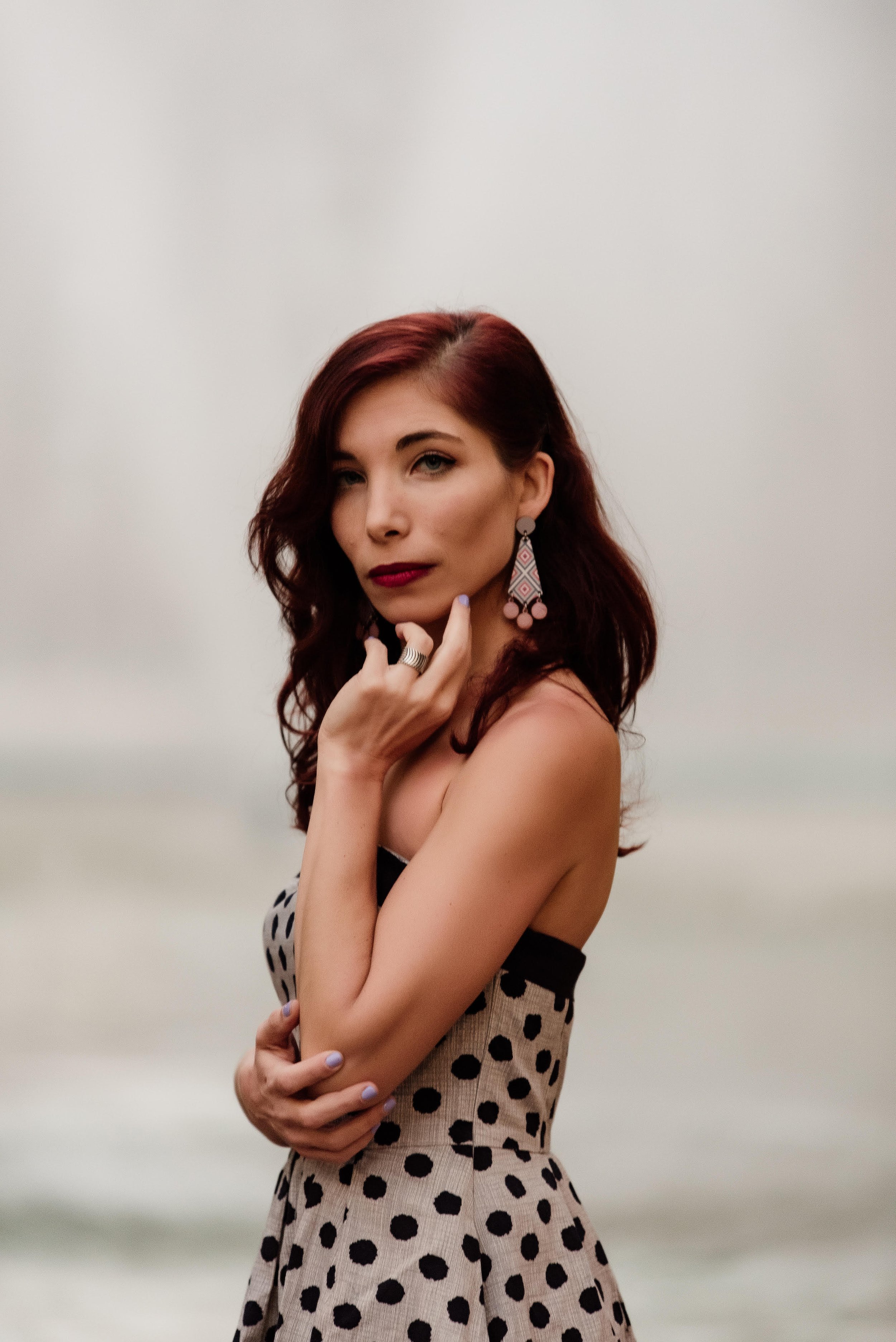You come from a self-prescribed family of the arts, what was that like growing up in a musical/artistic household? Why do you think you gravitated towards music rather than other arts?
"My mom is a dancer and a choreographer, my dad a poet and my grandmother is a painter and book illustrator. Almost everybody in the family plays music as a hobby. So yes, art of different disciplines was all around me, but music had a special place in the house.
I grew up dancing with my mom, playing piano and writing poems with my dad, and painting with my grandma. It was not only personal expression and fun but they were all pretty strict and taught me the meaning of professionalism from a young age. I took dance lessons for a long time and even participated in the Nutcracker production of the Israeli Ballet when I was nine. The production toured all around the country for several months, and this was a great experience.
When I was about twelve, I told my mom that as much as I enjoy being on stage, I don't enjoy ballet class and the physical work in the studio. She replied that, in this case, dance is not for me because when you really like something you should also enjoy the hard work of practicing and not only the performances. (She was right on point and the moment I started singing I realized how much I enjoyed the practice. )
I went to an Art high school, at first to the department of fine arts but soon afterward changed to a pianist in the classical music department and from there to Jazz. That was when I started singing.
Jazz may have been a bit rebellious in a family that cherished classical music but everyone supported my choice. My mom had a vast music library for me to explore that included lots of Jazz records, including Billie Holiday, Sarah Vaughan, Mingus, and Art Blakey.
On one of my birthdays, my grandpa (from my mother's side who is originally from Holland) who was a holocaust survivor, got me the full discography of Django Reinhart and told me a shivering story. He was 14 when the war started in Holland and spent the first months hiding in a basement. At this hiding place, there was a Django Reinhart record that kept him company and helped his sanity during this hard time. Later he was on the run for several years and the first thing he did when the war was over was to get a new violin because his old one was lost.
Music had a big place in the heart of everyone in my family, so much so that it helped me understand that being a musician means being a messenger of emotions and that the weight of life can be balanced with a song."
You grew up in Tel Aviv; what were your early musical experiences like there? Do you have any musical inspirations from Israel that you can share with us as we celebrate international jazz month?
"Tel Aviv is a beautiful colorful city full of culture. From childhood, I went to many concerts, theater, and dance shows and also listened to a lot of Israeli music at home.
There was a kid TV show that hosted many musicians, I heard some singers there and got really excited so my mom took me to the record store and I bought my first record of NOA (Achinoam) Nini. Years later, I found out that Pat Metheny produced her first international album.
I also enjoyed vocalist Chava Alberstein - I recently got to record one of her songs on a Roni Ben Hur Record "Stories" (Dot Times 2020) featuring Victor Lewis, George Cables, and Harvie S.
I like the work of pianist and composer Yoni Rechter a lot, who uses Jazz harmony with very Israeli-sounding melodies.
It is very common in older Israeli songs to have lyrics by poets, and texts with depth and complexity.
Besides the harmony and melodies of songs I grew up on, this concept also influenced me a lot."
Do you remember a moment in your life when you realized being a professional musician was your goal?
"I knew from about 14 years old that I would be doing music in my life but only later, after I graduated from my studies in the Netherlands, (Royal Conservatory of Den Haag) I set the goal of making my income from music.
I supported myself financially from eighteen years of age and paid for my studies and lessons by working as a waitress, bartender, model for painters, babysitter, and many other side jobs. But at some point, I just had to quit all that and take the risk of making a living just from music.
Growing up in a family of artists I was also aware of the financial hardship that might come with that choice. I set a goal for myself to reach the highest, most professional level, to be focused and hassle when I needed to. I love my choice of being a musician and am grateful for every day that I can make a living from my art.
When did you move to NYC? What sets it apart from other cities and their jazz scenes?
"I moved here in March 2015. The jazz scene of the city is one of very high level and is multi-international. The scene has a lot of variety of the subgenres of jazz, from traditional scenes, to bebop, modern, and free jazz, so you can choose the right musicians to work with to get the sound you are going for.
It is inspiring that there is so much talent. It gives you a lot of artistic freedom and keeps you practicing and perfecting your craft.
There are many wonderful musicians from all around the world who, just like me, came here following their passion for jazz. It is a competitive yet welcoming scene and has a place for artistic growth. I also got the chance to meet and play with some legendary players. There is so much to learn from the older generation."
Last month we celebrated women in jazz - what does that mean to you?
"It means a lot. Growing awareness of the presence of the many wonderful women in jazz is so important. There is a change that needs to happen and we are slowly moving towards it in the way that the industry and the musicians treat women as well as in how women treat each other.
Lately, I've been involved in building a mentorship program for Israeli women in jazz. Israel has a very male dominant scene and many talented women often don't enjoy the same opportunities. Together with my partner vocalist and composer Tammy Scheffer, we are enabling young female musicians to meet and learn from the experience of professional jazz artists in Israel and abroad. Our goal is to build not only an educational program, but also a community of women that support each other.
Here you can check more about it: https://www.instagram.com/jazzistiyot "
You have a Sunday night spot at Bronx Burger House - can you tell us a little about your set there, the musicians, and the general vibe?
"Together with my guitarist and partner in life and music George Nazos, we built this concert series at the Bronx Burger House. We were saddened by the lack of Jazz music in the Bronx, especially since after the pandemic and we knew something had to be done. We have a show with different guest musicians every Sunday 6-7 pm. We play a set of original music by Giorgos, the guests, and myself, then from 7-9 pm, we host a jam session. There are many amazing musicians up here in the Bronx and almost no place for jazz shows so we have great players showing up for the jam. Not only from the neighborhood but also from Washington Heights, Inwood, and Westchester. The first night we played, Jan 29th, there was a great festive atmosphere. Musicians and neighbors were all so thankful and happy to have live music in the neighborhood. It's very exciting and fun. We have about 20 musicians coming to jam weekly and so far, we were able to give work to 16 musicians."
Do you have anything you would like to promote? Album/tour/gig
"I just finished recording and mixing a new album of original compositions. It is a concept album with myself on piano and voice, George Nazos on Guitar, Trifon Dimitrov on bass, and Joe Abba on drums. I will present it at THE JAZZ FORUM on May 14th at 4pm and 6pm and at Maureen's Jazz Cellar, on June 3rd at 8pm."
Who have you been listening to this month?
"I've been listening to a lot of drummers lately as I've started practicing drums during the pandemic. It's a very exciting thing for me to get to experience music from a different perspective than I usually would. One of the albums I especially enjoy lately is 'Michel Petrucciani, Steve Gadd, Anthony Jackson - Trio in Tokyo'.
I also listen to a lot of Leonard Cohen, I love his songwriting and poems, especially his latest albums."
And finally, what are your experiences of KEYED UP! in the city and its importance?
"I got the chance to work with KEYED UP! already from 2015 when I moved to NYC, now as I write, I'm realizing how many shows I've done with you and thinking of how much work you give to musicians all around the city. It's incredible and so important!
The contribution of KEYED UP! is not only to us, the musicians, but also to the cultural texture of the city and everyone who lives in it benefits from your work."

